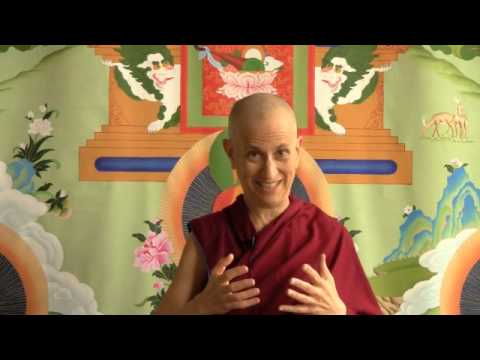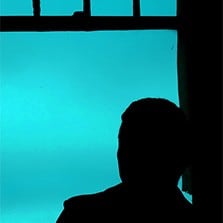Stress
By R. S.

A person in prison counters the stress of his situation with the Dharma.
Stress is one of those things that seems to have countless causes and conditions, most of which appear to originate outside of the mind—either from the environment itself, or from the social interactions we find ourselves in, or a combination of both. Usually, only these outside factors are recognized as the causes of stress, and any sense of responsibility for or ability to work with these factors is dismissed outright or not even recognized at all. In addition, unfortunately, most of the methods used to deal with or handle stress are generally rather destructive or harmful in both the long and short term.
It is extremely easy to misinterpret a look or comment from a fellow employee or incarcerated person and so very easy to run with that misinterpretation and create an entire great American novel full of the major negative mind’s craziness. Just as easily, sometimes even before awareness dawns—if it ever does—a harmful act or comment (not to mention all the myriad negative thoughts) has been committed. Similarly, many times the situation itself appears stressful. Recently, due to one prison being shut down, I was moved to a different prison. That itself can be bad enough, but it was much tougher than I expected because I had spent fifteen years in a cell with only one other person at a time, and now I was in a dormitory setting with 95 other people. Talk about culture shock. Immediately my mind went into a state of dislike, discomfort, panic, fear, anxiety, paranoia, hyper-sensitivity, and other thoughts that seemed so overwhelming and unbecoming of a real practitioner and follower of the Dharma.

People and situations are not in and of themselves negative or stressful. (Photo by Daniel Ramirez)
Now obviously, prison isn’t fun or easy to deal with at all times, and crazy thoughts pop up occasionally. People and situations anywhere may not be so enjoyable, but they are not in and of themselves negative or stressful. For me, it’s important to keep in mind that things aren’t always as they seem, especially when I’m seeing them through the eyes of ignorance, attachment, anger, and so forth. Taking time to look at things calmly, openly, and without the story I’ve concocted about them can be quite helpful in these situations. Also, realizing that how I see things makes me experience them that way.
I sagely give the advice when talking to others, yet when it’s me who needs it, I can’t recall it. For example, Randy and I are going outside to walk the track, and it’s cold and overcast outside. Randy can’t stand the cold, hates that the sun and blue sky are hidden away, but I love it as I burn easy and it reminds me of fun days of my youth. Is it the weather that is to blame, or is it how we look at and think about the weather at that moment?
All of the great Dharma teachers I’ve had the fortune to meet or whose books I’ve read all say that it is the mind that needs to be worked on, not external objects or events. If I look at the people or situations clearly, I find a wealth of opportunities to develop wisdom and compassion. In that case, I experience these things as much appreciated opportunities. However, if I only see them as negative and harmful, then that is exactly what they will be. Don’t get me wrong, I’m not able to employ this understanding all the time, but when I am able to, it really make a difference.
Along with mentally working on how my mind interprets and views the people and situations around more, incorporating some physical activity in to my daily life helps to decrease stress and to maintain an overall healthy life. I’m not into weights or competitive sports (although I love playing and watching soccer), but I really enjoy a solid hour of high aerobic calisthenics (push ups, pull ups, ab work, etc.) a few times a week.
Since it is my mind that is making these labels and creating the stress due to afflictions and karma, then it is up to me—it is my responsibility—to deal with it. The methods are there, and not to make use of them only allows the stress and negativity to continue. If not using the Dharma worked, then we should be free of all that is negative, because more times than not we forget to use the Dharma. The choice is ours, yours, mine—I can’t say it’s an easy choice, but it is a choice. And, as always, we experience the results of the choices we make.
Incarcerated people
Many incarcerated people from all over the United States correspond with Venerable Thubten Chodron and monastics from Sravasti Abbey. They offer great insights into how they are applying the Dharma and striving to be of benefit to themselves and others in even the most difficult of situations.


